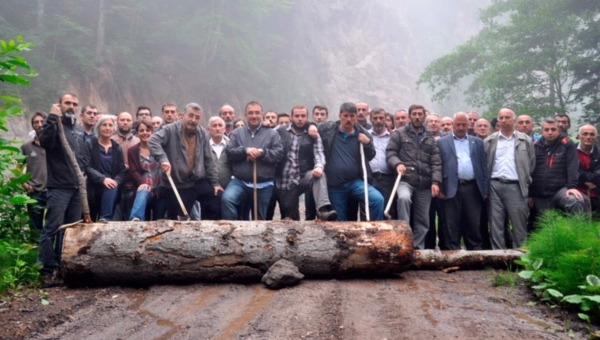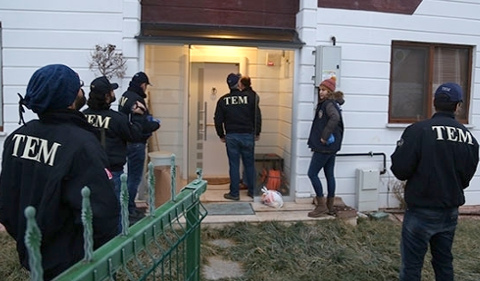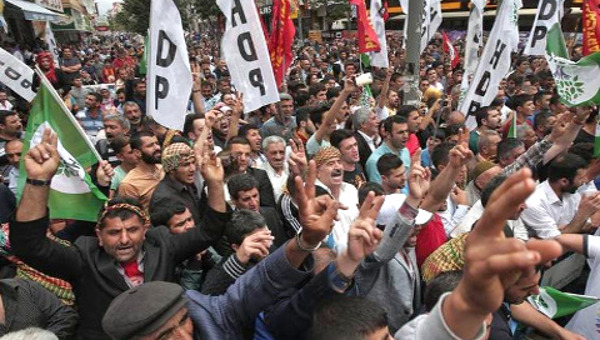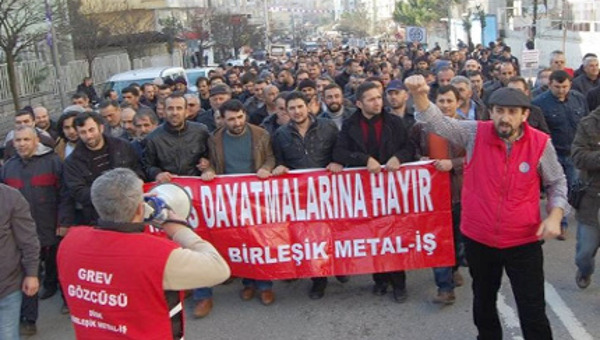“We are women; We are youth; We are the rainbow; We are children; We are defenders of democracy; We are representatives of all identities; We are defenders of a free world; We are protectors of nature; We are builders of a safe life economy; We are workers; We are labourers; We are the guarantors of social rights.”
— from the election manifesto of the HDP (Peoples’ Democratic Party), declared by the co-presidents Selahattin Demirtaş and Figen Yüksekdağ.
Following a period of increased political violence in the Kurdish regions of Turkey leading up to the federal elections of 2015, the worst being a recent bombing of the HDP rally in Diyarbakir (Amed) which left at least three people dead and hundreds wounded, there has been a watershed of party politics in Turkey. For the first time since 2002, there is evidence of the demise of Recep Tayyip Erdogan’s despotic rule over the country since he was not able to form a majority government. More importantly, the radical left-wing, Peoples’ Democratic Party (HDP), passed the threshold of 10 per cent (a barrier implemented during the 1980 military coup, with the precise purpose of keeping the Kurds out of parliament), thereby becoming the first pro-Kurdish party to enter the Turkish parliament.
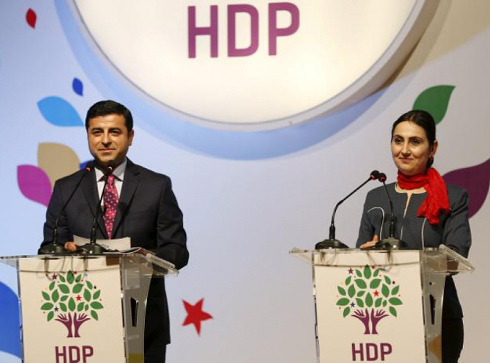
Furthermore the fact that 32 out of 82 HDP members of parliament (MPs) are women marks a radical shift in the political culture of the country. The significance of this nearly trumps the actual results of the election – or so it would appear. HDP recently has been likened to the Turkish version of SYRIZA or Podemos in their anti-capitalist platforms; however as of recently, it had essentially received no international media attention. Given that Greece and Turkey are neighbours, this oversight illustrates the euro-centric focus surrounding politics of the Left. In fact, in many respects HDP is more progressive than either of these European parties, particularly regarding women and minority rights. With roots in the Peoples’ Democratic Congress (HDK), a platform composed of various groups including leftist parties, feminist groups, LGBTQ groups, trade unions and groups representing Alevis, Armenians, and other ethnic minorities, HDP aims to create an alternative radical democratic space and culture as an alternative to global capitalism and neoliberalism, regardless of race, gender or religion in Turkey.
Transformative Class Aspirations
Though representation as a party in parliament is essential, there remains a lot of scepticism, toward the ability of originally socially progressive movements to maintain their transformative class aspirations once they enter party politics. However in the case of HDP, since its formation in 2013, there is a lot of evidence indicating that it may actually be capable of realizing or fostering substantive social change in Turkey. This can be attributed to many factors that are distinctive to the HDP compared to any other party in Turkey, stemming from a decades long tradition of the radical feminist Kurdish social movement which they have come to represent in parliament. Though recently there has been an outpouring of analysis of the HDP, there has yet to be a thorough examination of the role that radical feminist politics in the Kurdish social movement have played in the development of the party.
Any understanding of this case must take into account the interrelated oppression that Kurdish women face through their direct lived experiences, which predisposes them to a political consciousness evident in the women of the HDP. As a result of their ethno-cultural identity, Kurdish women have undergone especially harsh levels of class oppression, patriarchal violence, and subordination to the state; in response, they have developed their own unique forms of political agency (Wilson 2013). Nothing illustrates this transformative process better than HDP’s embrace of egalitarian principles, gender equality, and radical democracy.
These elements are mirrored in the cultural revolution of Rojava (Western Kurdistan) in Syria which claims to have overcome the reproduction of statist patriarchal relations altogether (Ocalan 2011). Currently in Rojava power is equally distributed between one woman and one man at all political levels from party presidencies to neighbourhood councils through its co-chair principle. The women’s movement is autonomously organized, socially, politically, and militarily. Similar to this framework, the HDP has created a popular grassroots feminist movement which provides a political platform for women’s rights groups, and signals a commitment to gender equality. The party is led by female and male co-chairs – Selahattin Demirtas and Figen Yuksekdag respectively – and the party charges female candidates half what it does men to run for office. Around 40 per cent of the HDP’s newly elected members of parliament are women – a remarkably large percentage in comparison to the other Turkish parties, where women hold only 17 per cent of the seats.
Many of the elected prominent Kurdish women figures of the HDP have been themselves political prisoners associated with feminist armed resistance as a result of their interlinked oppression and direct lived experiences. Leyla Zana, the newly elected MP of Agri, was imprisoned for 10 years for her political activism, and in 1991 she became the first Kurdish woman to win a seat in the Turkish parliament. She created a scandal when she spoke Kurdish on the floor of the parliament after being sworn in, even though it was illegal at that time. In 1994, she was arrested and charged with treason and membership in the Kurdish Workers’ Party (PKK – Partiya Karkaren Kurdistan). The former co-chair of the party, Sebahat Tuncel, went on trial for being a member of the armed guerrilla group PKK in 2006, accused of making frequent trips to PKK camps, and was subsequently imprisoned. She ran for parliament from prison and after winning a seat in Istanbul was released from custody in 2007. She is the first person in Turkish history to be elected to parliament from prison and the youngest woman to serve in the Turkish parliament. These women’s political struggle as representatives of the Kurdish social movement, and subsequent involvement in party politics, was often met with state violence, centered around a combination of racism and sexism, used to delegitimize their cause.
Dilek Ocalan, recently elected to represent the HDP in Urfa, is the niece of the imprisoned leader of the PKK, Abdullah Ocalan, whose conceptions of “democratic confederalism” seem to be emulated in the party’s platform. He claims that the root to overcoming capitalism and state oppression are through female emancipation:
“All the power and state ideologies stem from sexist attitudes and behaviour[…]. Without women’s slavery none of the other types of slavery can exist let alone develop. Capitalism and nation-state denote the most institutionalized dominant male. Capitalism and nation-state are the monopolism of the despotic and exploitative male.”
He further claims:
“Nothing in the Middle East is as gruesome as the social status of the woman. The enslavement of the woman is similar to the enslavement of the peoples, except it is even older… The project of women’s liberation goes far beyond the equality of the sexes, but moreover describes the essence of general democracy, of human rights, of harmony with nature and communal equality,” (Öcalan 2010).
In addition, the party appears to embrace Öcalan’s ideas of “social ecology.” A significant part of the party’s platform is focused on environmental protocol, stemming from the original initiatives of the Occupy Gezi movement, which entailed massive protests against the ruling party and state authoritarianism during the summer of 2013.
Radical Pluralism
Lastly, seemingly as a result of living various forms of oppression, the Kurdish women of the HDP are predisposed to being more sympathetic to other oppressed peoples of Turkey. The HDP moves beyond the dichotomy of Turkish and Kurdish ethnic and national identity politics and homogeneous religious or ethnic identities by embracing politics and practices embodying a “radical pluralism.” Among the HDP there are members of parliament that are from Armenian, Roma, Aramean and Yezidi minority groups, as well as the first openly queer MP in Turkish history. The HDP has also called for a new constitution that enshrines minority rights for Kurds, Alevis and other religious and ethnic minorities. The HDP has also been unwavering in their fight for the rights and support of the LGBTQ community in Turkey – by far one of the most oppressed groups of the Turkish state.
Clearly the elements accounting for the success of the HDP in the recent elections are many, among them the aftermath of the Occupy Gezi social movement, AKP’s lack of response to the battle for Kobane and the social conservatives switching their allegiance from AKP to HDP in their determination to see an end to Erdogan’s reign over Turkey. Still, as far as the representation and tradition of the party are concerned, the role that radical feminist politics represented by the Kurdish social movement has played should not be overlooked. The women of the HDP, through their direct lived experiences and political consciousness in the Kurdish social movement, show promise of many of these principles and practices being translated into Turkish party politics for the future. •


